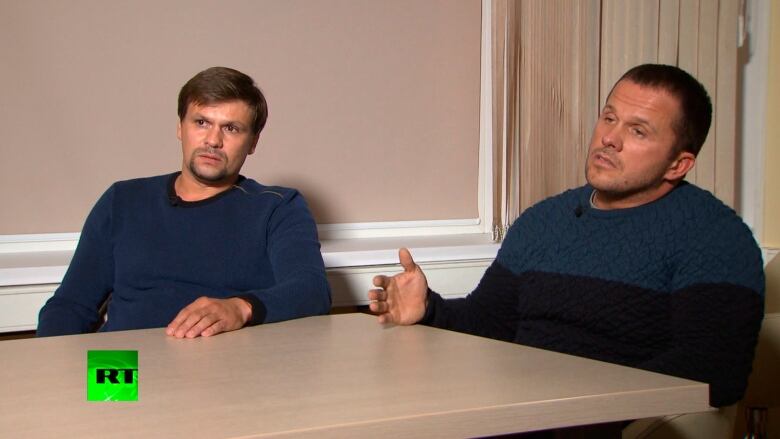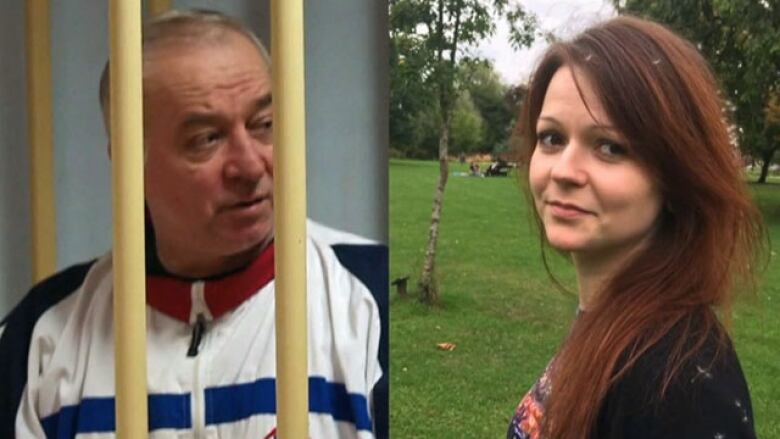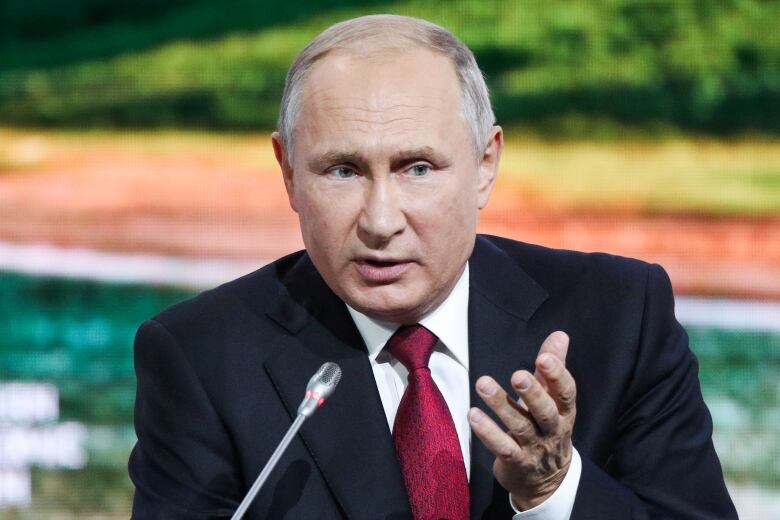Russia's handling of Skripal affair shows 'propaganda machine is not working'
UK investigators have identified two Russian suspects in March poisoning in Salisbury

The drip-drip-drip of revelations about the alleged hit men of Salisbury can't end soon enough for the Kremlin.
Ever since the British government identified Alexander Petrov and Ruslan Boshirov as the suspects in the March poisoning of Sergei and Yulia Skripal, the Russian government and its state TV messengers have been scrambling to find counter-narratives to disparage and cast doubt on the investigation.
In a widely mocked interview a week ago with Kremlin-linked broadcaster RT, Petrov and Boshirov offered up an implausible story that they are vitamin salesmen who simply travel a lot. They claimed they were drawn to Salisbury to see its cathedral, and that is why they were in the city the day of the Skripal poisoning.
But on Thursday, the journalism collective Bellingcat, which has driven news coverage of Petrov and Boshirov's shady backgrounds,reported that not long after the poisoning, the men were arrested by Dutch police for spying.
Independent Kremlin-watchers say that the men's explanations are so laughable that Putin's officials have barely tried to back them up.

Russia's explanation of the poisoning "was a major disaster," said Alexander Vassiliev, a former KGB agent and now London-based espionage historian who has tracked Russia's security services for decades. "The propaganda machine is not working. It's mistake after mistake."
A former rival of Vladimir Putin's for the presidency was even more blunt. Writing in an online journal out of St. Petersburg, economist Grigory Yavlinsky said such bare-faced lying is destroying what is left of Russia's credibility not only abroad, but also at home.
"We are poisoning ourselves," he wrote.
Countering the narrative
Putin has called the idea of Russia being behind the poisonings as "nonsense," while state TV has repeatedly suggested that the use of the nerve agent Novichok against the Skripals was done by British special services to discredit Russia.
But "to continue pushing this line, Russia has to convince people these two guys are innocent, and now I don't think that's possible," Vassiliev told CBC.
"Russians don't go to Britain for two days to visit Salisbury."

Bellingcat has published several reports about Petrov and Boshirov since they spoke publicly on RT. The most significant disclosures included confidential passport information such as contact phone numbers within the Russian Ministry of Defence that strongly suggests the two men have Russian secret service connections.
Then, in the midst of all these embarrassing leaks, it appears the Russian government tried to shift the focus away from the Salisbury story, evoking another painful crime Russia stands accused of: the shooting down on Malaysian Airlines Flight MH17 in 2014.
Last year, a five-country team of investigators concluded it was a Russian missile transported by Russian soldiers to Russian-backed separatists in Eastern Ukraine that knocked the plane out of the sky, killing 298 people.
But a Russian general proclaimed earlier this week that new evidence has suddenly come to light: serial numbers on the missile linking the weapon to Ukraine's army, not Russia's.
For years, Russia's story was that a Ukrainian fighter jet shot down the passenger plane, so this latest explanation marked yet another shift in the Kremlin's narrative.
Independent political commentator Konstantin Eggert, who is based in Moscow, said that for the Kremlin to invoke MH17 one of the most damaging and painful points of conflict between Russia and the West in recent years demonstrates how worried it is.

"Coming up with MH17 to replace [the Skripals] tells me how bad the Salisbury story is for them," Eggert told CBC. "The problem is they [the Kremlin] can't admit the truth. So they have to invent false explanations all the time."
'An overarching obsession'
Eggert said that for the Russian government, "You can look stupid, you can look out of touch and even vicious, but you cannot look weak. This is an overarching obsession for the regime."
Vassiliev said ridicule and mockery is often a tool used by Kremlin propagandists to diminish the seriousness of an issue. This week, Russia's embassy in London tweeted a photo of the Loch Ness monster to suggest that the idea that Boshirov and Petrov are spies was, like the monster in the lake, a myth.
1/2 MFA spox #Zakharova: Salisbury poisoning has become a sort of Loch Ness monster. No one has seen any evidence, but people talk about it and faked clues appear regularly. Read the full text (in Russian): https://t.co/7iaOR3E4Ll pic.twitter.com/VyU25RFxy1
—@RussianEmbassyBut Vassiliev argues the strategy has backfired in the Skripal case. Scores of Russian diplomats have been expelled by Canada, the U.S. and dozens of European countries; and the U.S. expanded its economic sanctions against Russia, which has been a contributing factor in pushing Russia's currency down and driving up prices.
By looking foolish to the rest of the world, Vassiliev said the Kremlin has also undone many of the public relations gains from staging the World Cup over the summer. The soccer tournament was widely viewed as a success, with international visitors lauding their Russian hosts for throwing a great party and being so welcoming.
The domestic fallout for the Kremlin of these recent intrigues is harder to assess, as opinion polls are unreliable. But in his article, Yavlinsky argued all Russians lose.
"In the eyes of the whole world, the people and Putin are united. As they say, all of us here... are smeared," he wrote.
Eggert said the Skripal incident remains an unpleasant distraction for the Kremlin leadership, and moving past it will be difficult. He said the continuing revelations about Petrov and Boshirov strongly suggest people on the inside of the UK investigation are leaking information.
"It's quite evident that the British security service is feeding information bit by bit to make Moscow lie even more."












_(720p).jpg)


 OFFICIAL HD MUSIC VIDEO.jpg)
.jpg)



























































































